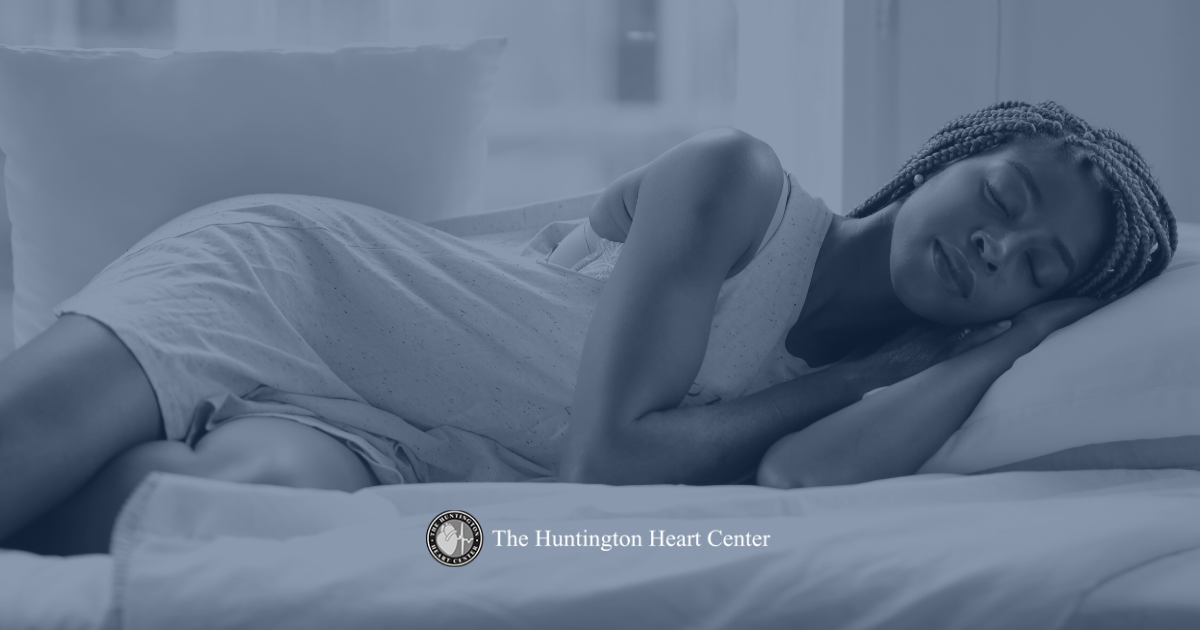Sleep and Heart Health
 If we were to tell you that one of the most helpful tools to maintain your heart health was free, readily available, and quite literally made every part of your life more productive and enjoyable, we’re pretty sure that you’d jump right on it. Well, the truth is that it does exist; and it’s called sleep. Sleep is critical for continued bodily function and health. While all of us do it, many of us do not get enough of it. The average adult should get between seven and eight hours of sleep. There are some people whose normal sleep patterns require only six hours while others may require more. Each of us is unique. However, when we are deprived of sleep, we increase the risk of several serious diseases that can ultimately affect the heart.
If we were to tell you that one of the most helpful tools to maintain your heart health was free, readily available, and quite literally made every part of your life more productive and enjoyable, we’re pretty sure that you’d jump right on it. Well, the truth is that it does exist; and it’s called sleep. Sleep is critical for continued bodily function and health. While all of us do it, many of us do not get enough of it. The average adult should get between seven and eight hours of sleep. There are some people whose normal sleep patterns require only six hours while others may require more. Each of us is unique. However, when we are deprived of sleep, we increase the risk of several serious diseases that can ultimately affect the heart.
- Those who do not get enough sleep tend to have higher blood pressure. Of course, we know that higher blood pressure can lead to heart failure due to the constant increased pumping requirement of the heart.
- Sleep deprivation can also lead to excess weight and obesity. Studies have shown that lack of sleep is a key in excess weight and obesity. Excess weight causes a plethora of issues including type two diabetes, high cholesterol, high blood pressure, sleep apnea and more. Each of these conditions can lead to serious heart problems.
- Issues such as sleep apnea, where breathing is interrupted at night and oxygen does not consistently reach the entire body. This can lead to heart attack, Atrial Fibrillation (AFib) and even stroke.
- Patients may feel tired during the day, may reduce their physical activity and may feel a greater degree of stress. This simply creates a vicious cycle.
So how do we get more sleep?
Normal sleep habits do not happen overnight. It is likely that your sleeping habits degraded over time. So, you must rebuild them over time as well. You can start with a comprehensive sleep assessment here at our sleep center on Long Island. This allows us to understand more about your sleep habits and patterns as we monitor how you sleep during the night to see if there are any irregularities.
In the meantime, however, there are a few tips and tricks that you can use to improve your sleep starting…tonight.
- Don’t eat within 2-3 hours of your last meal of the day
- Don’t use electronic device or watch TV within 3 hours of bedtime
- Try to maintain a routine – similar time to bed and waking up
- Eat well and exercise during the day
- Practice relation techniques or meditate before bed
- Spend more time outside during the day
- Make sure your room is not too hot at night
Over the longer-term, you may also wish to invest in a new mattress, pillow and bedding. It may take some time to find the right one, but many mattress companies offer generous guarantees and return policies. While mattresses and other bedding can be expensive, remember that you spend upwards of a third of your life in bed and asleep, making the long-term cost quite reasonable.







